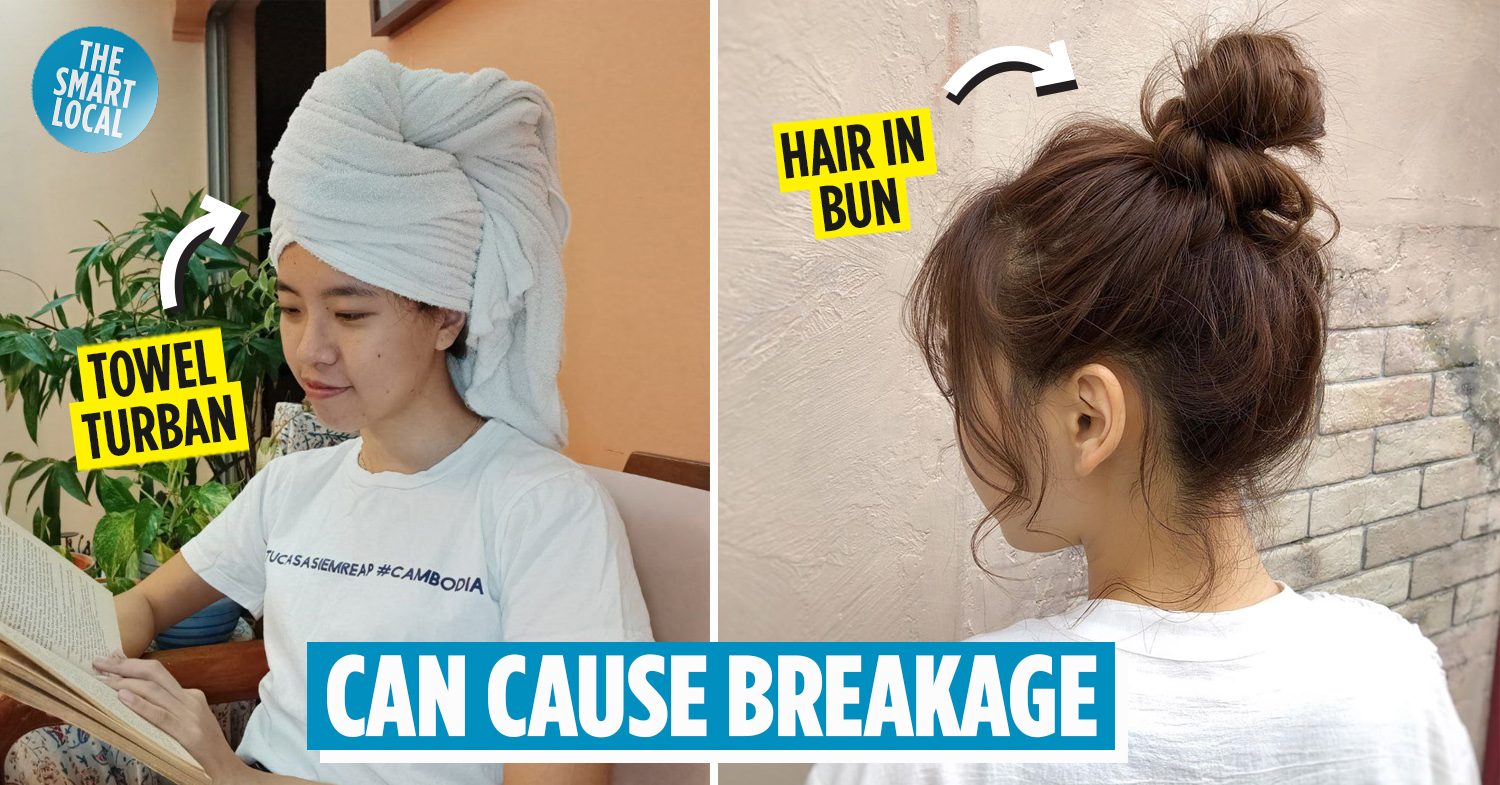Causes of hair loss
When it comes to the topic of hair loss, everyone from our mothers to hairdressers can agree that factors like genetics and the wrong hair products are the main causes. Ask anyone who’s going through it and they’ll tell you what a confidence-dampener hair loss can be.
I myself am experiencing thinning hair in my early 20s, and it’s only after I dropped by Beijing 101’s Funan outlet that I found out why. It turns out simple everyday habits like brushing your hair and sleeping late are sneaky culprits. So here’s what you need to know:
1. Using shampoo with sulfates for sensitive scalps
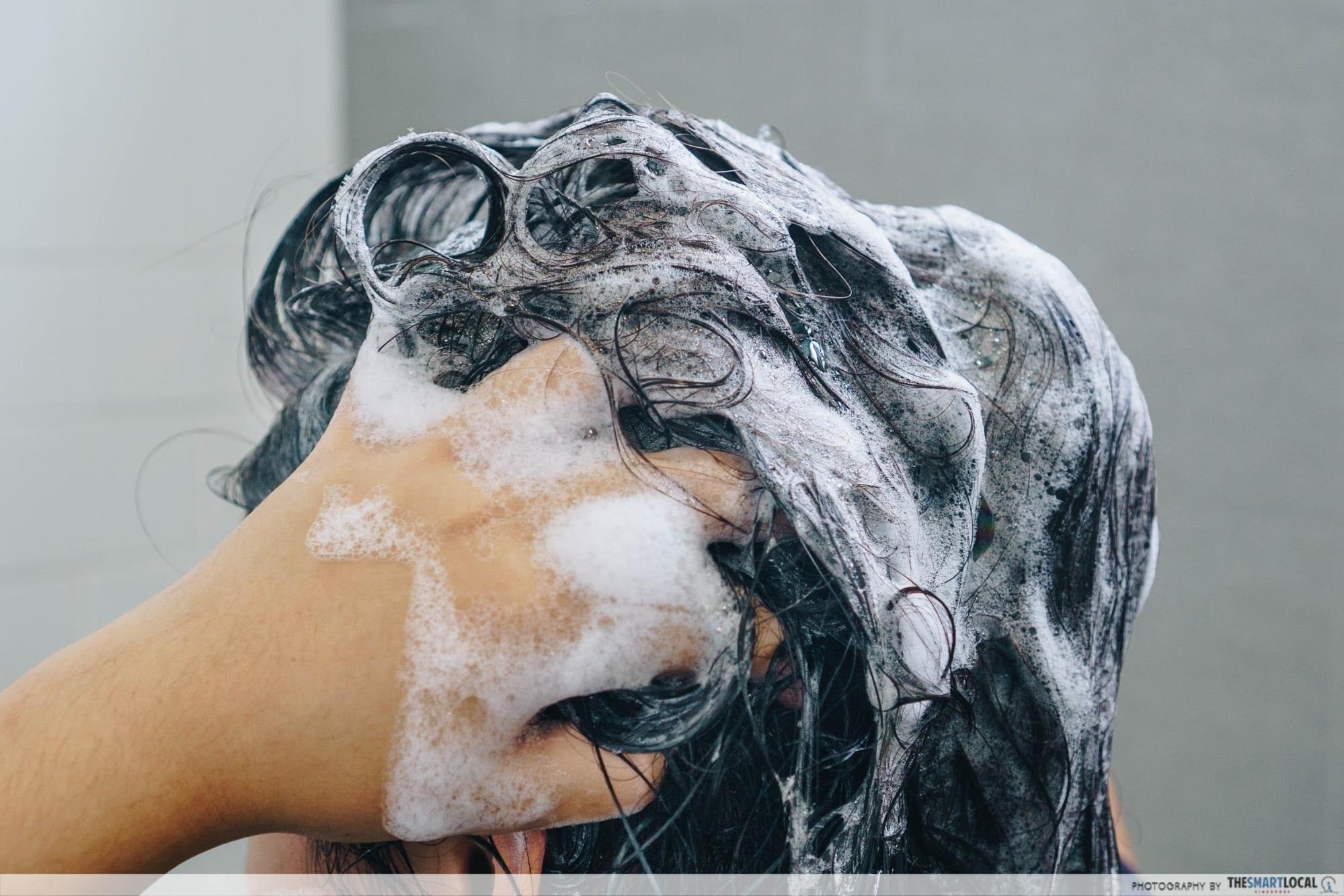
When it comes to choosing a daily shampoo, most of us simply grab whatever we can find at the nearest drugstore. But before picking up a brand new bottle, it pays to scan the ingredient list for sulfates like sodium lauryl sulfate and sodium laureth sulfate – these chemicals aren’t 100% safe for peeps who experience hair loss.
Sulfates are basically the ingredient that makes your shampoo lather up, but in the world of hair care, they’re particularly damaging to those with sensitive scalps. Other than clogging up hair follicles, these chemicals can also inflame the scalp – both of which are the perfect recipe for hair loss.
Solution: I have a pretty sensitive scalp, so if you’re like me, my hair consultant recommended using products with natural ingredients like organic tea tree oil and aloe vera to minimise any potential reactions.
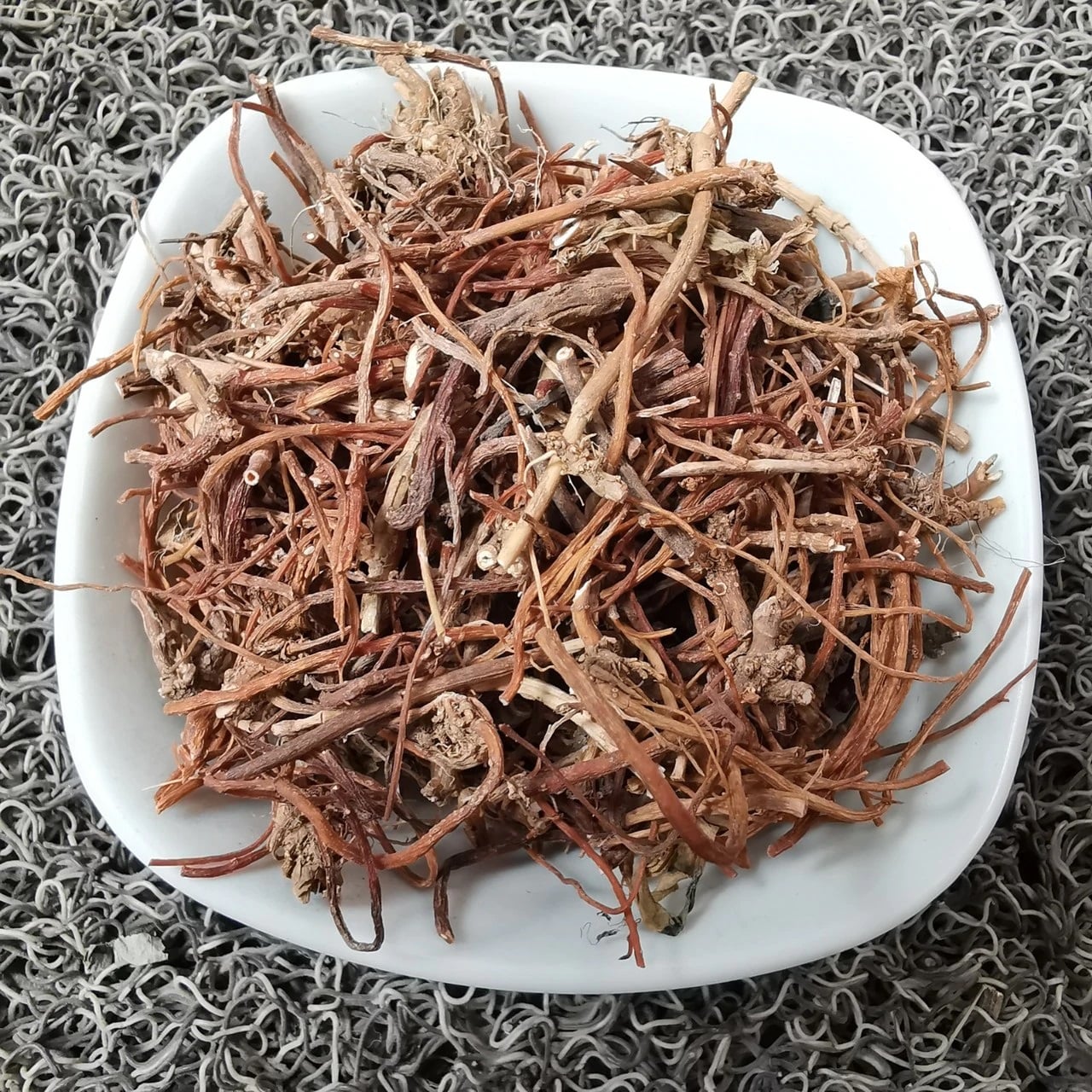 Long dan
Long dan
Image credit: My Herb
Something you can look into are TCM herbs like long dan, which are said to have anti-inflammatory properties. Ginseng helps too, by boosting blood circulation in your scalp and restoring shine to lifeless-looking hair. You can easily DIY a treatment at home by steeping them in warm water and running it over your scalp .
2. Wearing a ponytail or making a towel turban after showertime
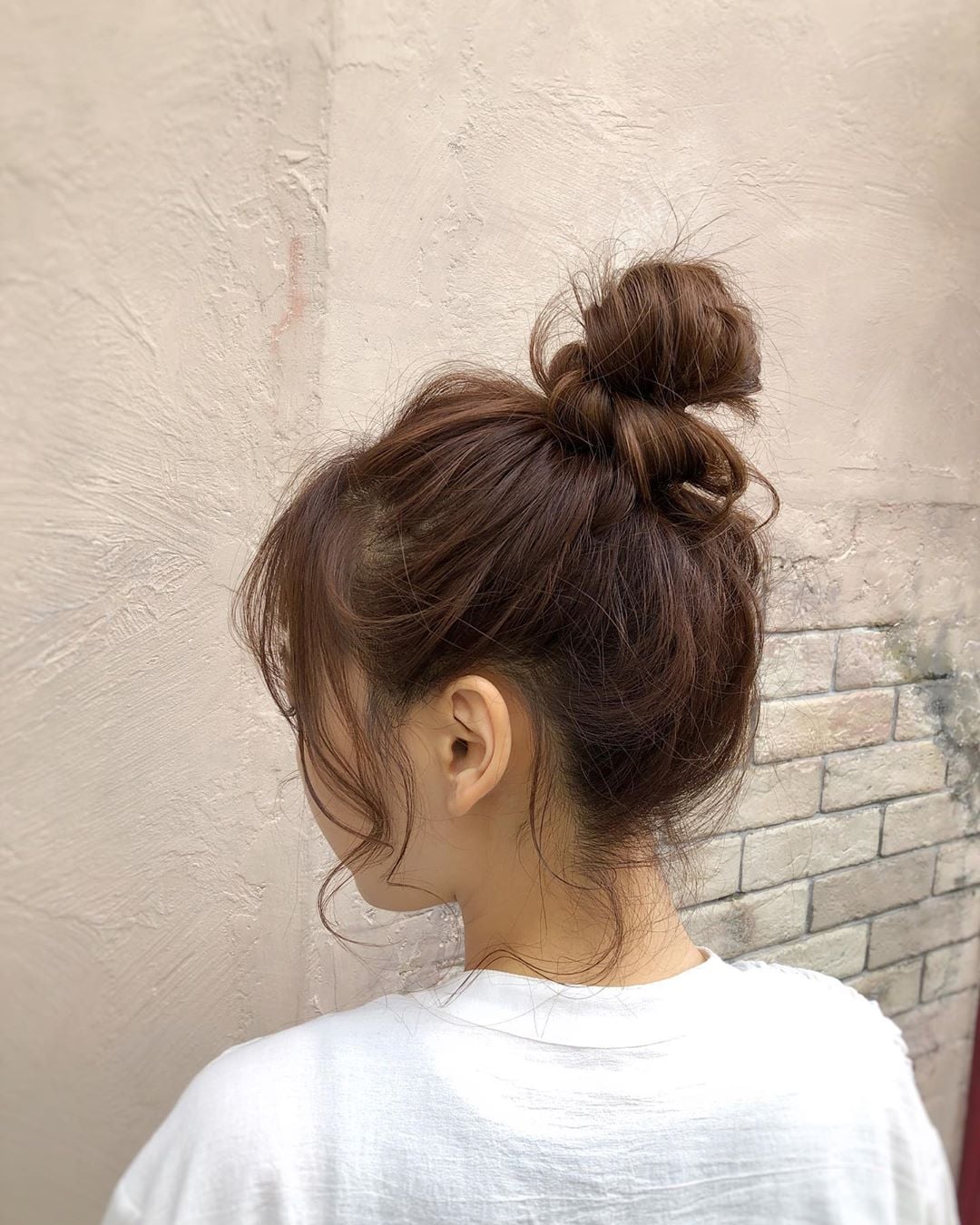 Image credit: @hairstage_vogue
Image credit: @hairstage_vogue
With Singapore’s perpetual sweat-inducing weather, putting our hair up is a habit that’s become almost second nature. So is throwing our hair into a towel turban after a shower to prevent excess water from dripping onto our T-shirts and floor.
Doing these things, however, tugs at your hair and the resulting tension will cause the hair to weaken and eventually break off. If this is a habit for you, you might notice your hairline receding or an increased amount of baby hair – a sure sign of hair loss.
Solution: Try alleviating some of the stress lingering within your hair follicles by using an acupressure massage. I learnt that you can use your fingers to press down on certain acupressure points around your head for 5 – 10 seconds to ease tension and stimulate hair growth. Key points include:
- ‘Seat of Bliss’: 6 – 8 fingers above your eyebrow
- Paihui point: in the middle of your scalp
- Base of your skull: the point where your head meets your neck
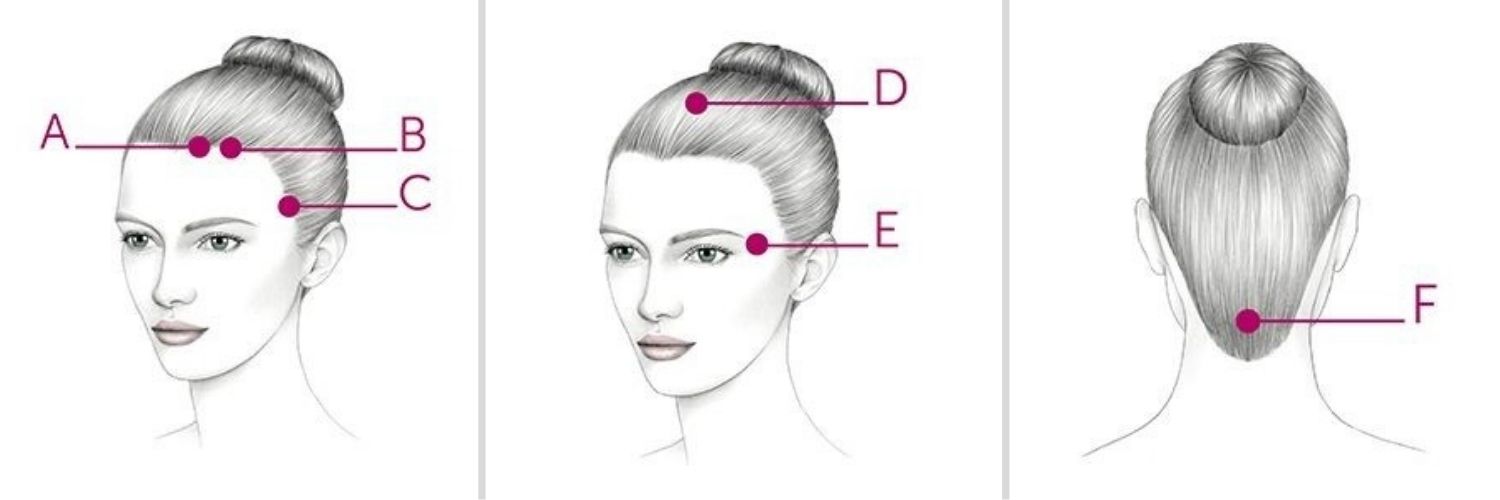 Some of the other acupressure points on and around your scalp
Some of the other acupressure points on and around your scalp
Image adapted from: Pinterest
3. Sleeping at 1AM-3AM every day
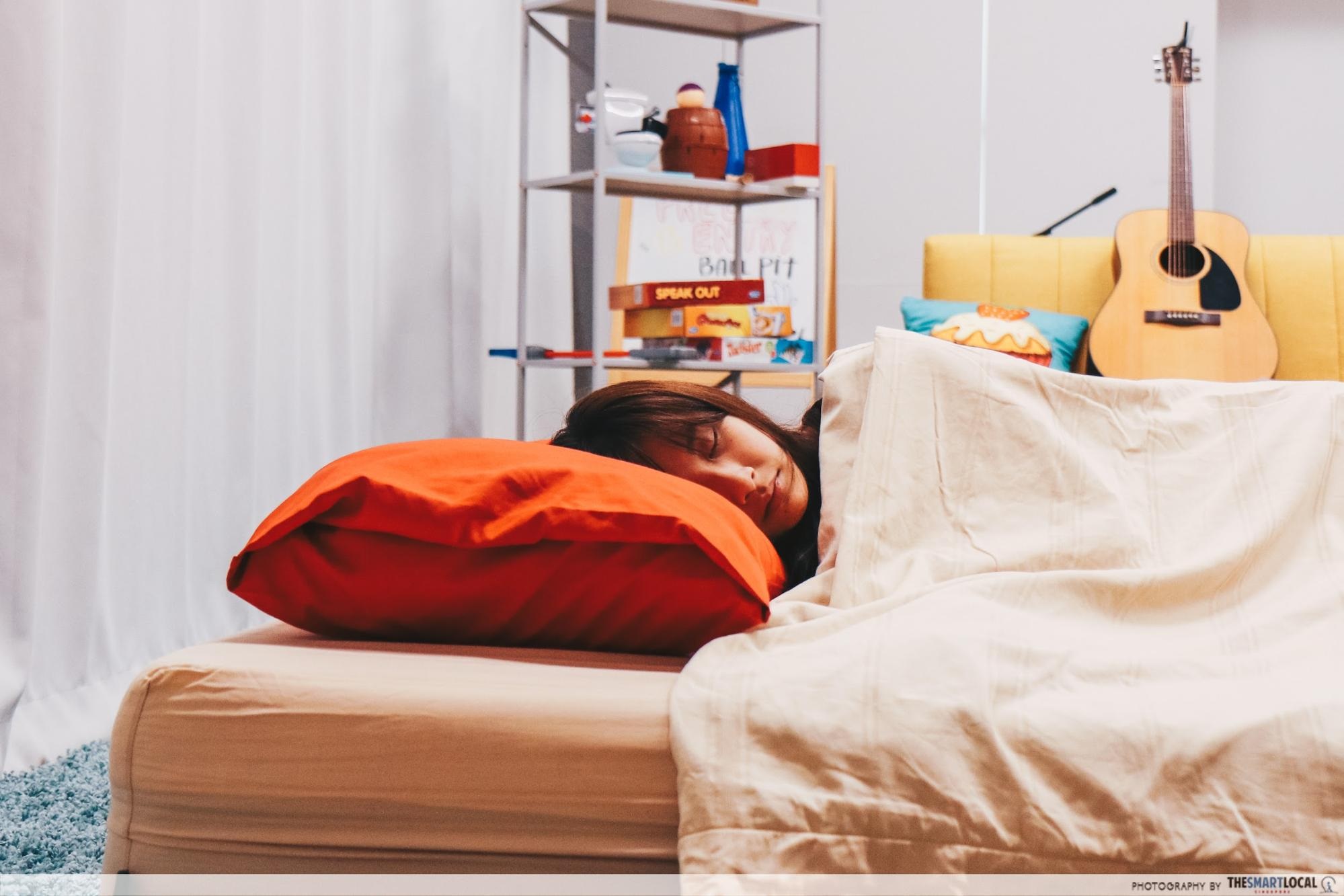
For many of us – whether we’re studying or working that 9-to-5 – sleep is a luxury. A measly 4-6 hours of sleep is now the norm as we wind down with late Netflix binges, but little do we know that sleeping late causes hair loss.
When you don’t get enough sleep, your scalp tends to overproduce sebum as a reaction to stress. This “drowns” your hair follicles and causes hair to fall out. Your body also releases more cortisol when it’s overworked, which can cause inflammation and an excess oil on both your skin and scalp.
Solution: During my treatment, my hair consultant highlighted that lack of sleep is one of the main culprits for my oily scalp. She advised me to catch about 7-9 hours of sleep every night – which is a number that’s admittedly easier said than done, but something we should try to hit every night all for the sake of our health.
4. Going to bed with your hair wet
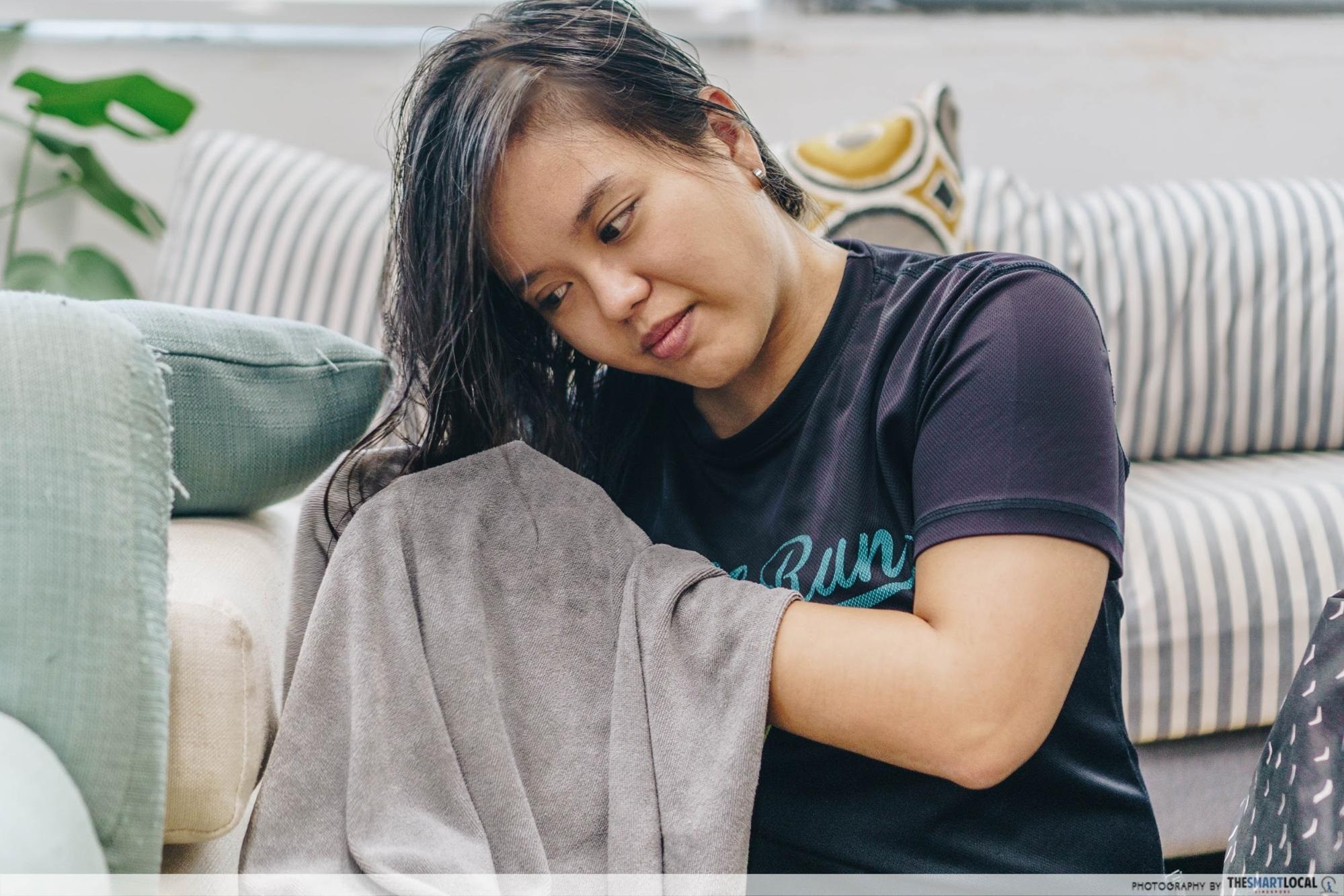 I’ve gone to bed with damp hair a couple of times, and seeing all that hair on my pillow in the morning is not fun.
I’ve gone to bed with damp hair a couple of times, and seeing all that hair on my pillow in the morning is not fun.
Nothing feels as good as a hot shower in the evening to wash away the stresses of the day – especially after a long day at work. As tempting as it is to plop onto your bed and snooze right after that, doing so can actually lead to hair breakage and even a fungal infection.
Think about it: a warm head and damp pillow is a major breeding ground for fungi to grow. Hair is also weakened when it’s wet, and tossing and turning in your sleep can cause hair strands to snap.
Solution: If you have to wash up before hitting the hay, be sure to either blow dry your hair or apply leave-in conditioner or coconut oil to prevent excessive hair breakage.
Additionally, you can also steep herbs like long dan in some warm water and pour it over your scalp 2-3 times a week. The anti-inflammatory properties of this herb don’t just calm sensitive scalps, it also staves off potential hair fungal attacks.
5. Brushing your hair excessively
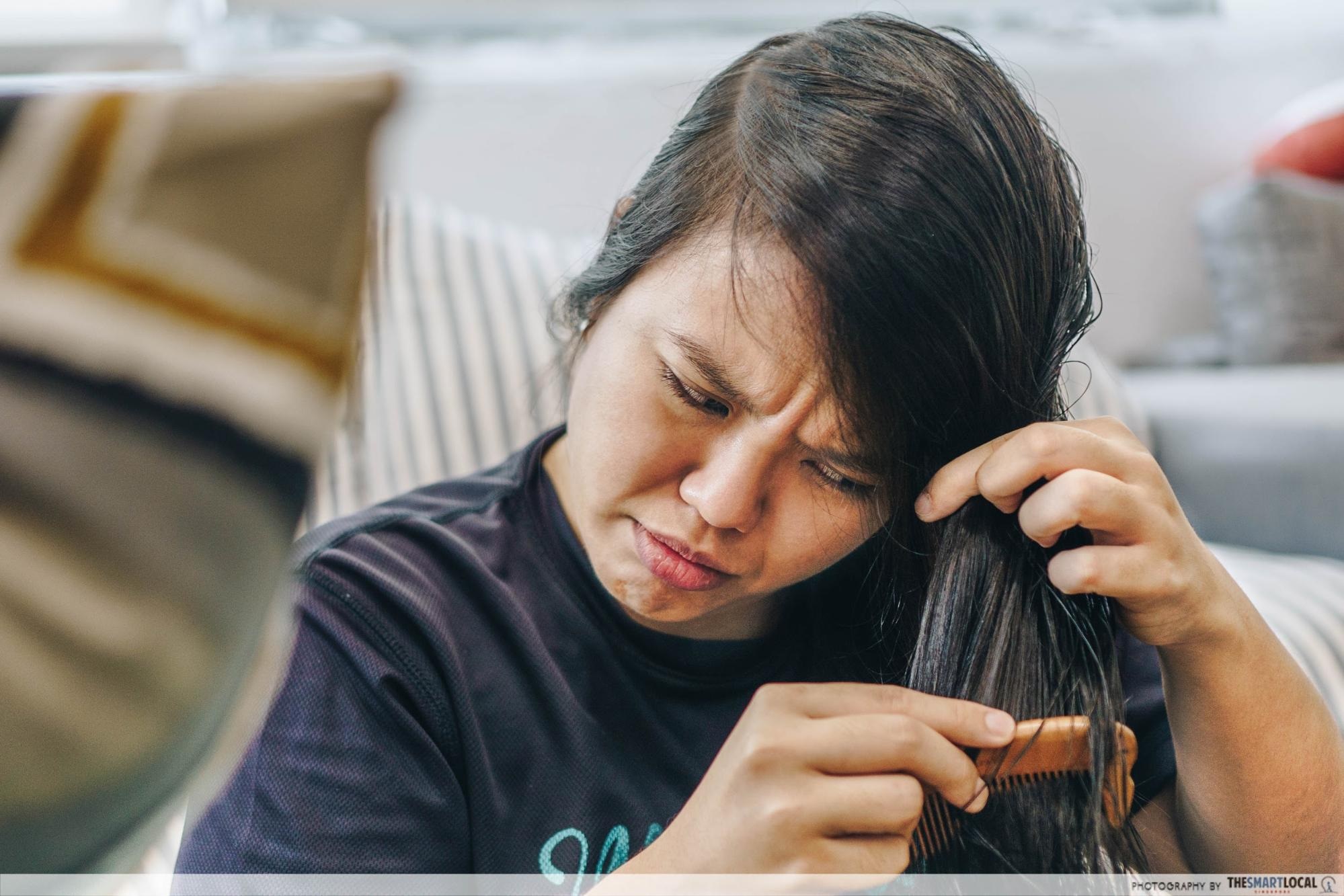
The myth of brushing your hair 100 times a day originated in the 20th century when hair products weren’t as commonplace as they are today. If you still subscribe to that belief, perhaps it’s time to, ahem, brush it off.
But if you’ve ever noticed how your hair tends to collect on your brush, that’s a red flag as too how it can actually cause hair loss. After all, constant friction – a.k.a. tugging on your hair with a brush – tends to result in hair breakage.
Solution: Brush your hair only when you need to smooth the strands out and untangle unruly knots. You can also use your fingers to comb through your hair, and do an acupressure massage in place of brushing the scalp to promote blood circulation.
Treating hair loss with Beijing 101 Hair Consultants
More than just the usual shampoo-and-conditioner routine, proper hair care is also checking our daily habits. Things like sleeping after a shower or wearing our hair in ponytails the whole day may seem pretty harmless, but in actual fact, it can damage our hair and eventually lead to hair loss.
Even if you’re guilty of doing all these things, not all is lost. You can still revive your hair even after it breaks off, and as the Beijing 101 Hair Revival Treatment shows, a healthy scalp to stimulate hair growth is an achievable dream.
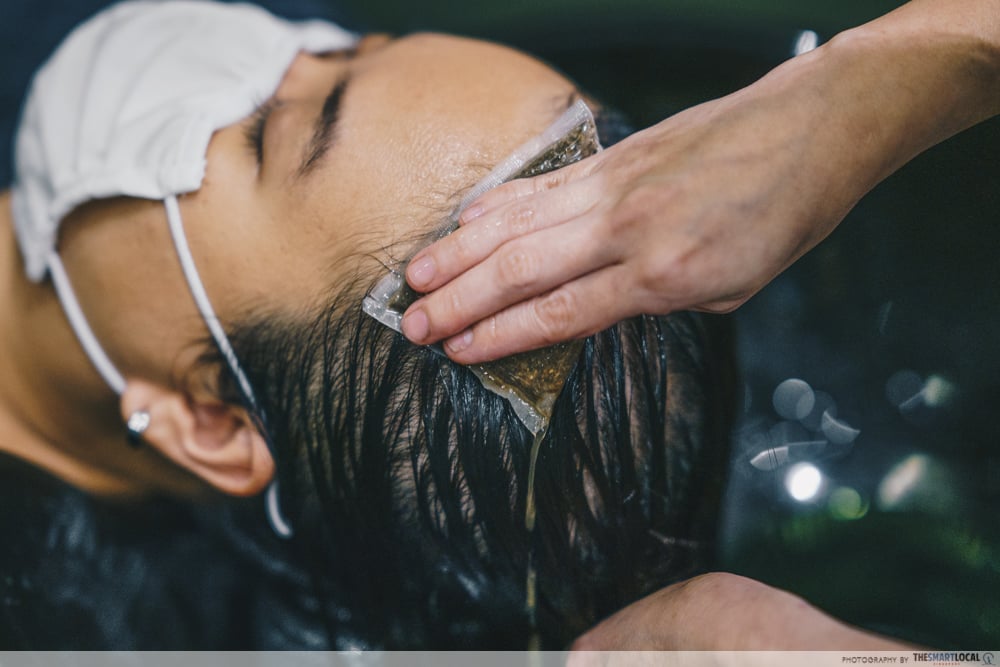 My hair consultant ran warm, herb-infused water over my scalp for around 5 minutes to soak every hair follicle with its healing properties
My hair consultant ran warm, herb-infused water over my scalp for around 5 minutes to soak every hair follicle with its healing properties
This treatment goes a more natural route by applying TCM principles to hair care. That means premium-grade herbs are used to tackle different issues. Sensitive scalps like mine are treated with long dan, while those with other pertinent issues like dull or greying hair can benefit from the use of herbs like ginseng and he shou wu.
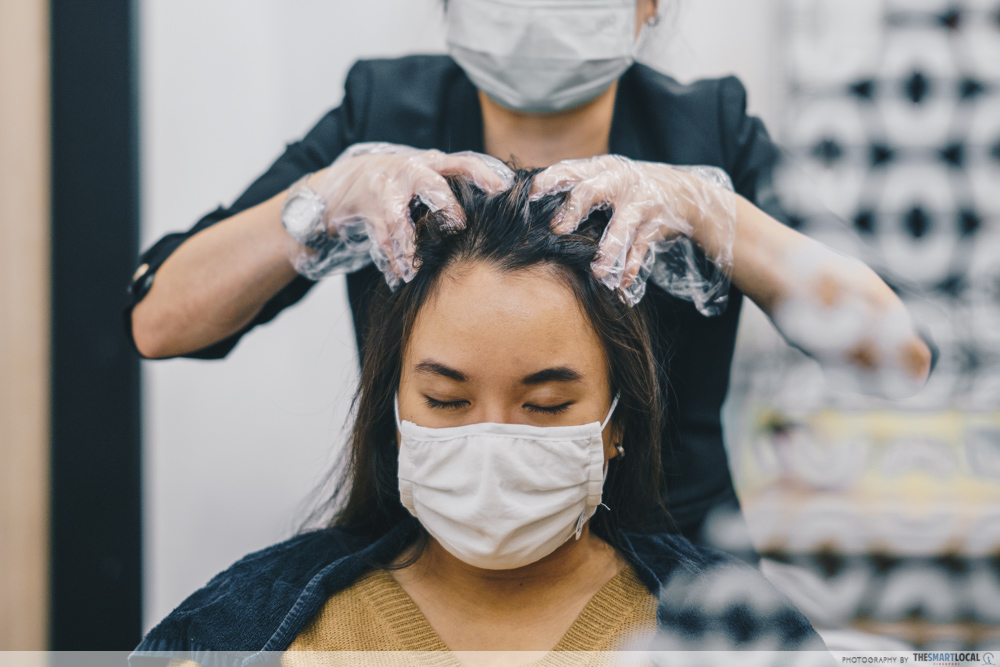
The hair consultants will also employ an acupressure massage during the treatment. Unlike a typical head massage, they will apply pressure to specific points all over your scalp, which was still relaxing enough to put me into a light snooze.
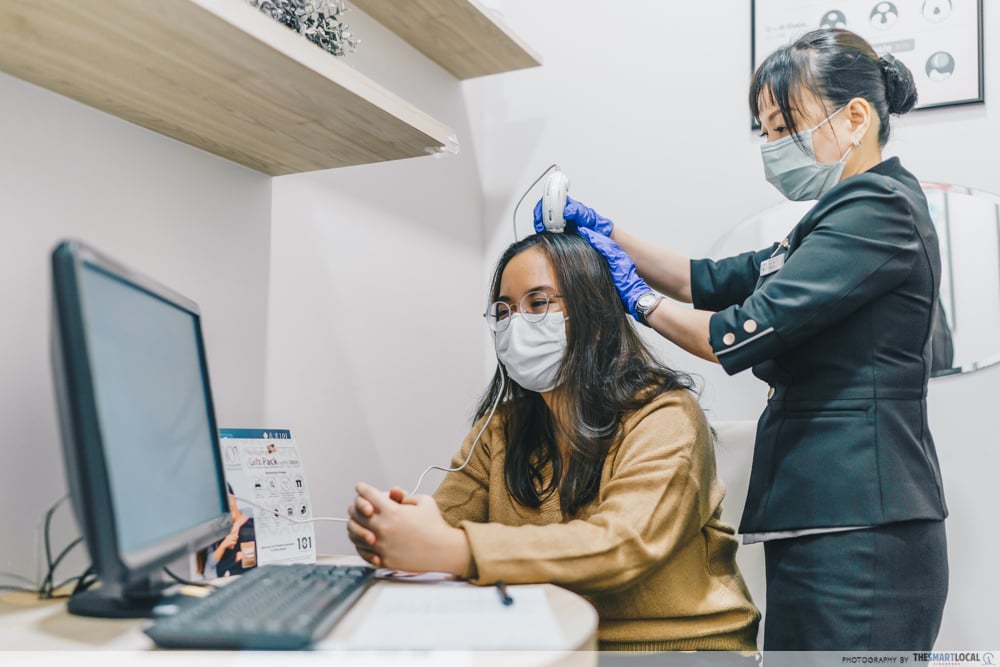 After the treatment, I was glad to see that my scalp wasn’t as inflamed and that the amount of dandruff was significantly reduced.
After the treatment, I was glad to see that my scalp wasn’t as inflamed and that the amount of dandruff was significantly reduced.
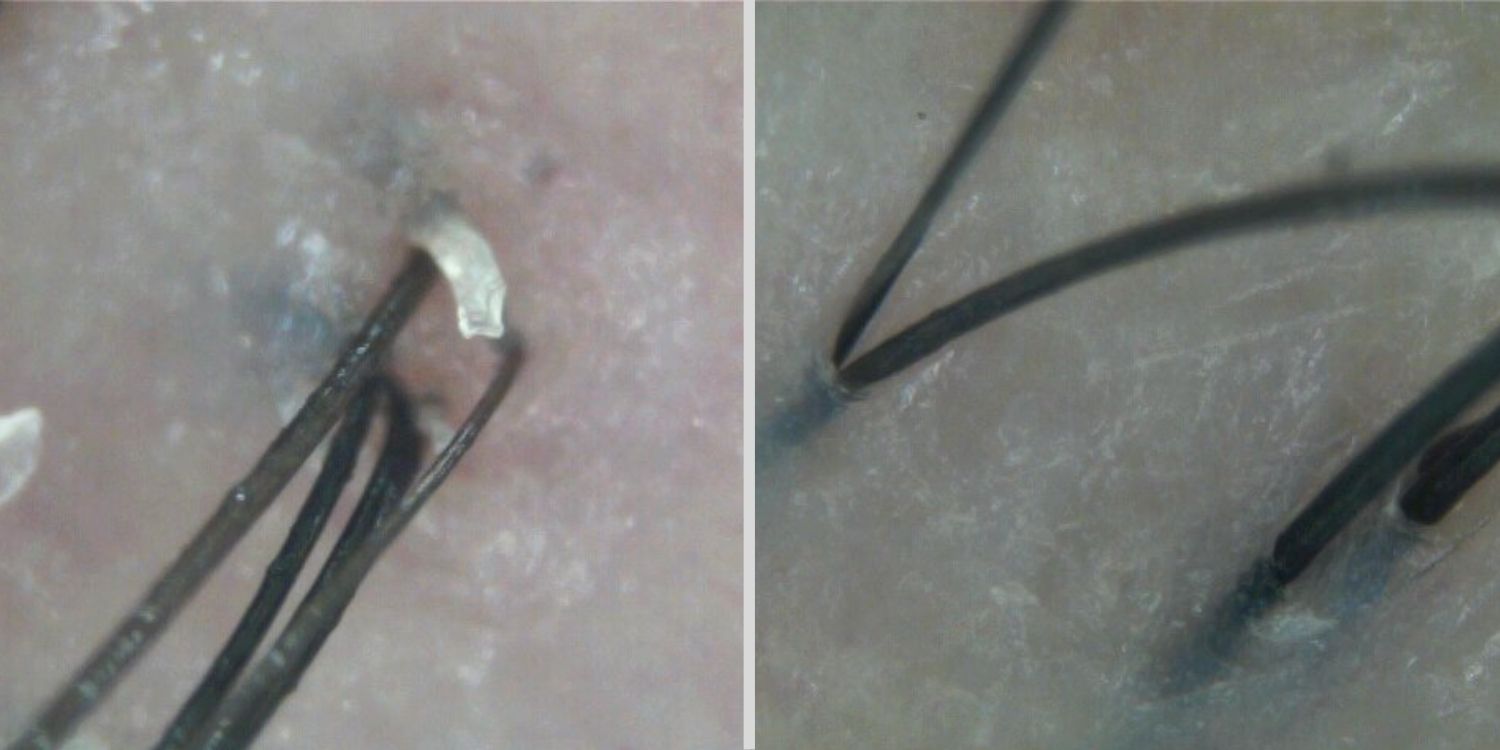 Before and after images of my scalp
Before and after images of my scalp
Image credit: Beijing 101 Hair Consultants

Be it dandruff issues or oily scalps, each of us has our own gripes when it comes to our hair. And with 101, rest assured that you’ll get a treatment designed to give your scalp the TLC it deserves. If you’re keen to get rid of any existing issues ASAP, try out one of these unique treatments at 101. First-timers can book an appointment at any one of their outlets and try their Hair & Scalp Revival Treatment for just $40 nett (valid until 30th June 2021), so it’s a guaranteed bang for your buck.
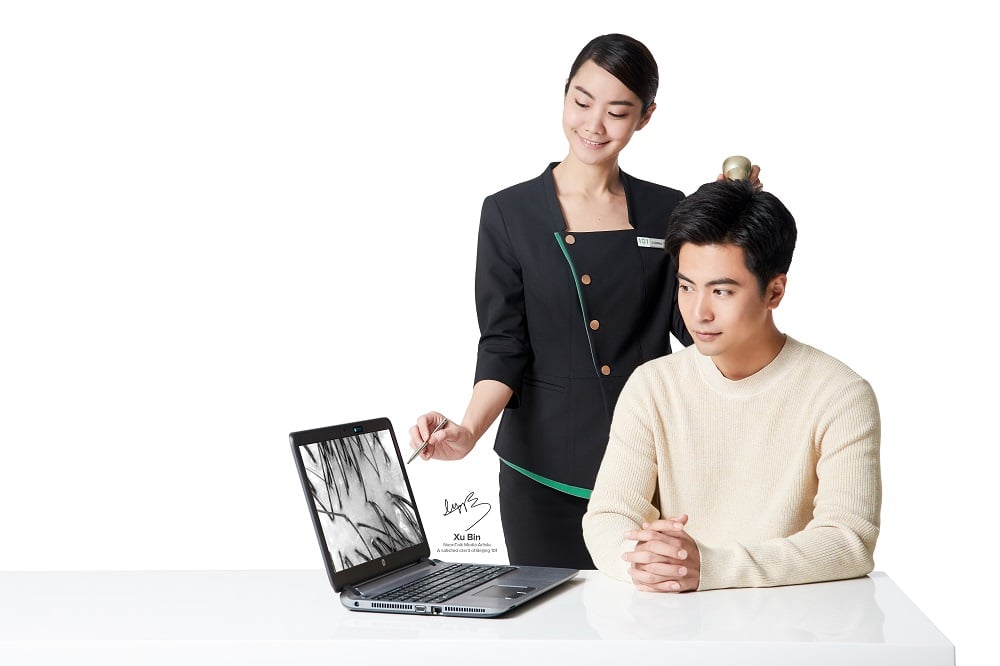 Image credit: Beijing 101 Hair Consultants
Image credit: Beijing 101 Hair Consultants
Try Beijing 101’s Hair & Scalp Revival Treatment – book an appointment now
This post was brought to you by Beijing 101 Hair Consultants.
Photography by Clement Sim.
Cover image adapted from: Kezia Tan and @hairstage_vogue
